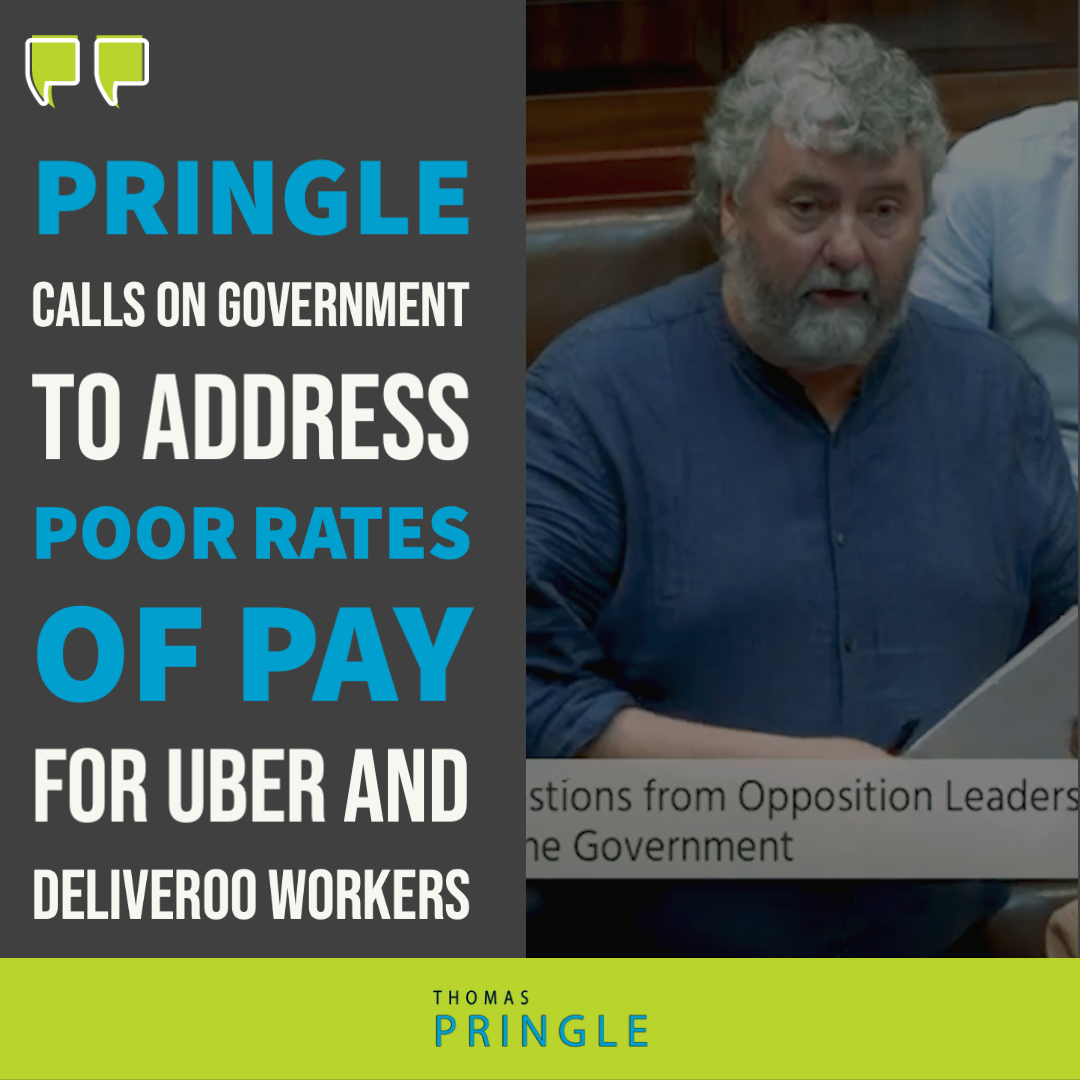- Pringle: We need a policy that recognises the importance of inshore fishing
- Pringle: Disabled people and carers face crisis of State neglect
- Pringle: Failed FF/FG housing policies forcing people to put their lives on hold
- Pringle welcomes Donegal council motion on Occupied Territories Bill: ‘We cannot stand by in the face of genocide’
Pringle calls on Government to address poor rates of pay for Uber and Deliveroo workers
- Updated: 28th June 2023

Independent TD for Donegal, Thomas Pringle, has called on Government to address poor rates of pay for Uber and Deliveroo workers.
Addressing the Dáil on Tuesday, Deputy Pringle said a constituent involved in filing a new Sipo complaint about the influence of Uber and Deliveroo over public policy was invited to a recent meeting with two Department of Enterprise officials, and was accompanied by the General Secretary of the App Drivers and Couriers Union in the UK.
Deputy Pringle said they brought a number of requests to Government at the meeting, including: increasing the number of legal working hours per week, following a precedent set by the Spanish government, so that those in Ireland on student visas can work from 20 to 30 hours “as a cost-of-living measure that will protect them from exploitation and from having to work in the informal economy to afford to live in this country”.
The deputy said they also called on Government to “update departmental definitions to recognise that the type of work done by Deliveroo and Uber Eats riders in Ireland is not genuine self-employment, as envisaged when the current rules were made in 2010. It is clear that they are most definitely not conducting their own business here.”
Deputy Pringle said Government was also asked to “commit to the speedy introduction of a new €6 per delivery minimum payment, or an €18 per hour minimum wage for delivery couriers, similar to the deal reached in New York City. Government should also ensure that payments can only increase in line with inflation and not decrease, as we have seen happen since 2019.”
The deputy asked the Taoiseach if he would proactively ensure a reversal of recent trends in Ireland that have seen minimum payments for deliveries fall from €4.39 in 2019 to €2.90 in 2021, and even as little as €1.30 and 36 cents per delivery in 2023.
Deputy Pringle said: “Will your government follow the other examples by fixing the pay at least €6 per delivery, or at least €18 per hour, for this dangerous work and follow through with the other commitments given, arising from your meetings with delivery workers and their representatives on March 10th, 2021 and June 23rd, 2023?”
The deputy asked: “Will you support parliamentary enquiries at national and European level into the types of political influence these companies are trying to exert?”
Deputy Pringle raised the issue during Leaders’ Questions.
As part of his response, the Taoiseach, Leo Varadkar, said ministers for employment and social affairs agreed on a European general approach to a new European directive to improve working conditions for platform workers. He said the European Council is to start negotiations on this with the European Parliament.
Deputy Pringle said: “There is a new EU directive coming and that will be useful, but that will take many years.” The deputy said surely there were steps that could be taken here and now to make lives better for delivery workers.



